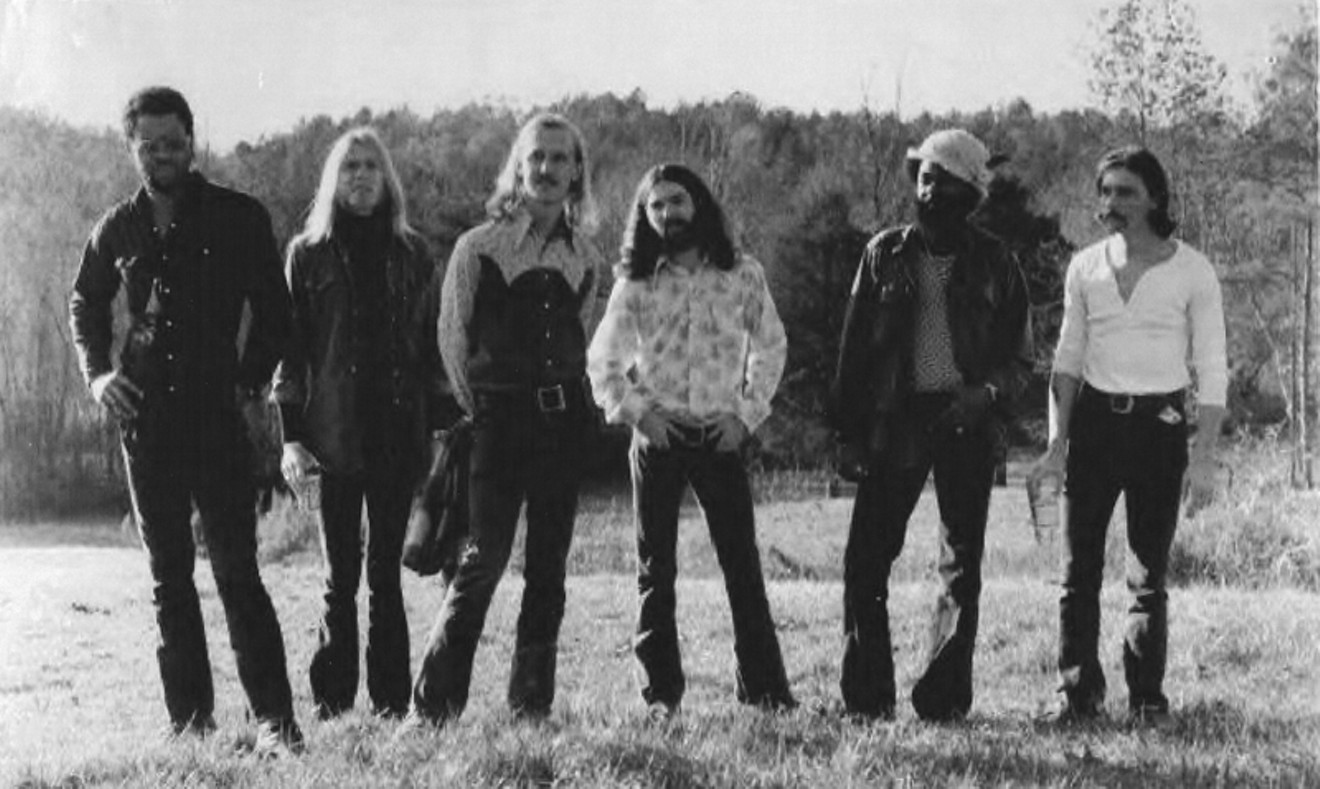Almost exactly one year after that, another loss came with the eerily similar freak motorcycle accident death of bassist Berry Oakley, just three blocks from the site of Duane’s demise.
Ironically, the band had finally broken through commercially and becoming more popular with 1971’s epochal Live at Fillmore East and follow up Eat a Peach. So, there was much, much riding on the group when they entered Capricorn Studios in their hometown of Macon, Georgia to piece together what would become 1973’s Brothers and Sisters.
The tale of this record that clocked in at just over 38 minutes—and the ensuing years up until the group’s initial breakup in 1976—is told in Alan Paul’s Brothers and Sisters: The Allman Brothers Band and the Inside Story of the Album That Defined the ‘70s (352 pp., $32, St. Martin’s Press).
That subtitle, Paul admits, might be hard for some to swallow in a decade that also saw the release of Exile on Main Street, Who’s Next, Dark Side of the Moon, Rumours and Hotel California.
“I knew I’d have to answer this question!” Paul laughs from his home via Zoom. “But the book is bigger than just the album. It brings together a lot of things about the era, and I wanted to convey that.”
In addition to detailing the creation of some jaw-dropping music, the book’s narrative also covers the band’s internal and external tensions, drugs, booze, more drugs, legal tangles, career peaks and valleys, and the explosion of Southern Rock. Along the way, there are important cameos from players as diverse as Geraldo Rivera, the Grateful Dead, Jimmy Carter and Cher.
Paul is uniquely qualified to tell this story. Arguably the world’s foremost expert on the Allman Brothers Band, he’s already written a definitive oral history (One Way Out) and has personal and professional ties with various band members and players in the ABB orbit. He even sings and plays guitar in the gigging “continuation group” Friends of the Brothers.
For Brothers and Sisters, Paul had something of a guardian angel in the form of the ABB’s longtime friend, photographer, archivist and “tour mystic” Kirk West. In the mid-1980’s West conducted hundreds of hours of interviews with band members for a biography he never wrote. The band would reunite in 1989 and make him an employee.
The boxes containing those cassettes gathered dust in West’s office for nearly four decades until he sold and entrusted them to Paul (who had long known about their existence) in 2021.

The Grateful Dead's Jerry Garcia and Dickey Betts onstage in 1973.
Photo by Sidney Smith, AllmanBrothersBookbySidneySmith.com
“Kirk thought the book was a good idea, and I had already started on it when he offered me the tapes,” Paul says. The handover is documented in the book’s expansive photo insert, the shots taken by Paul’s son Jacob.
“The volume of what I had was overwhelming, and I didn’t [digitize] every single tape,” he continues, adding that the audiobook of Brothers and Sisters will feature some 40+ audio snippets of the band members themselves talking, licensed from West.
“He’s really happy that these have finally come to light and people can hear them,” Paul says.
The Allman Brothers Band went through two major changes with Brothers and Sisters. The first was the stepping-up of singer/guitarist Dickey Betts as a writer, player and vocalist. He was reluctant front man who shared a sometimes-uneasy power balance with Gregg.

Gregg Allman and Phil Walden at Capricorn Music Weekend, 1973.
Photo by Sidney Smith, AllmanBrothersBookbySidneySmith.com
“Dickey was definitely reluctant to step out. Neither he nor Gregg were natural leader types. And what I mean by that is there’s a certain burden to that in making decisions and interacting with people,” he says.
“Gregg was withdrawn and self-centered and struggling with his own issues. And Dickey would sometimes just disappear into himself to where even his bandmates weren’t comfortable talking to him. That was an issue for all of the band, except Duane. And I think Dickey knew that about himself.”
For Gregg, he says, it would have been hard to change roles from the little brother who adored his older sibling with the big personality and calm demeanor and step into his place. To complicate matters, Allman was recording his first solo record, Laid Back at the same time the sessions for Brothers and Sisters were going down. Betts would later also release a solo effort, Highway Call.
Paul also goes into the complicated role that Phil Walden played (and some feel, abused) in the career of the Allman Brothers Band. A charming but slightly-sketchy industry character along the lines of Morris Levy or (for Houstonians) Don Robey and Huey Meaux.
Not only was he the head honcho at Capricorn Records, the band’s label and recording home. But he was also the their manager, booking agent, merchandiser and publisher. Roles that brought with them heavy conflicts into what was the band’s best interests at a time.
He was also going full-bore into Southern Rock with other acts like the Marshall Tucker Band, Charlie Daniels Band and Wet Willie, while indulging in his own substance abuse issues.

Jimmy and Roslyn Carter (right) visit Dickey Betts (arms folded) and Phil Walden (leaning) in the Capricorn studio while Betts records his "Highway Call" solo record, 1974.
Photo by Herb Kossover
“If it hadn’t been for Gregg Allman, I never would have been President,” Carter is quoted in the book. And indeed, the band and Walden threw early clout, exposure, and—perhaps most importantly—financial contributions the long-shot candidacy of the Bob Dylan-quoting peanut farmer from Georgia with the sizable choppers and honey-soaked accent.
Paul says that to his credit, even after he was elected President, Carter stood by Allman when the latter was going through very public issues surrounding drug and legal issues. That exploded when Allman testified in open court against his own road manger and valet/bodyguard, John “Scooter” Herring in a criminal trial. Herring had also supplied Allman with drugs. For most, the “Brotherhood” code had been not just been broken, but betrayed and destroyed.
“It’s been interesting and surprising to me that a lot of people don’t know about that relationship with Jimmy Carter. And I didn’t realize the extent to which everyone abandoned Gregg and Jimmy didn’t,” Paul says.
“Carter by far had the best reason to abandon him. What politician wouldn’t issue a statement [against] Gregg? No one would have blamed him. But he didn’t do that, and I think that’s impressive. Jimmy Carter wouldn’t have existed as a national figure without the Allman Brothers. And they used the national popularity they had with Brothers and Sisters to boost him when he needed it.”
Paul adds that there is a direct link between the album’s Betts-penned/sung tracks “Southbound,” “Pony Boy,” and their biggest ever commercial hit, “Ramblin’ Man” and the Outlaw Country movement of Waylon, Willie, and the boys. Ironically, “Ramblin’ Man” peaked at No. 2 but was held off by “Half-Breed,” a tune performed by Cher…the future Mrs. Gregg Allman!
But back to West’s audio tapes. The question must be asked: When Paul first got his hands on the irreplaceable complete collection, did he ever consider purchasing an extra plane seat next to him just to keep the container in sight at all times?
“No!” he laughs. “But that would have been such a good story!”










